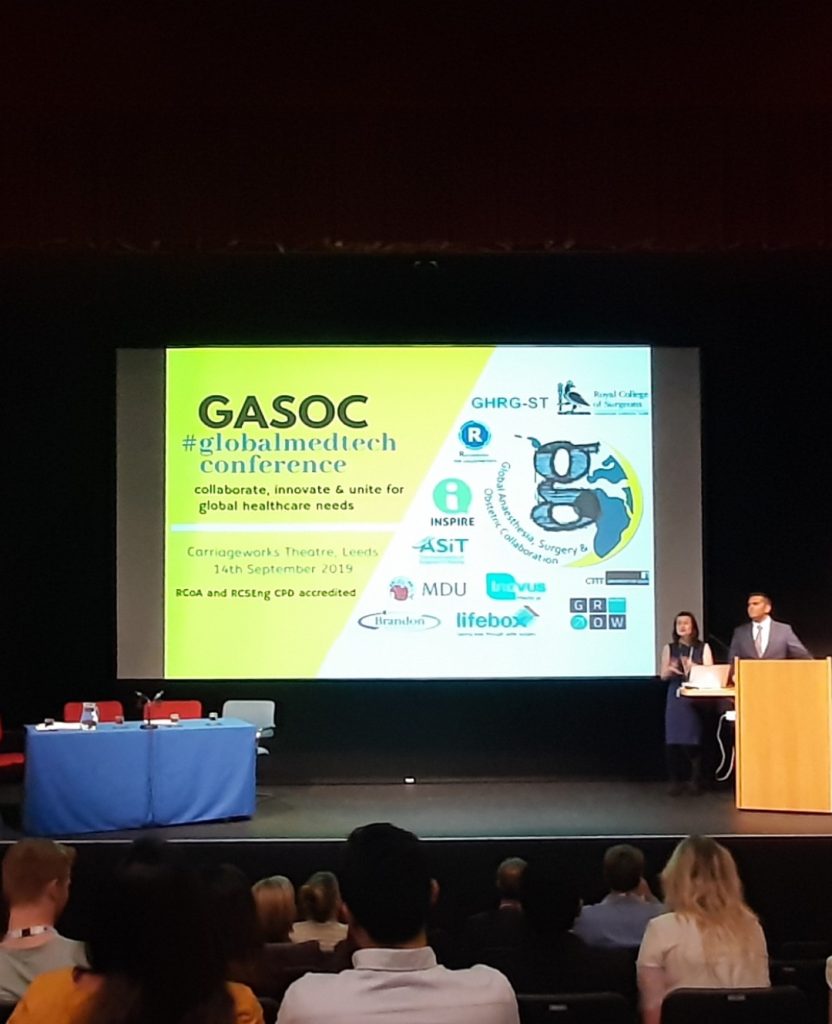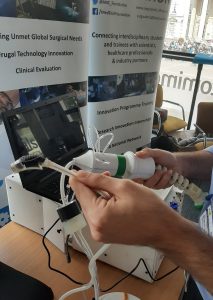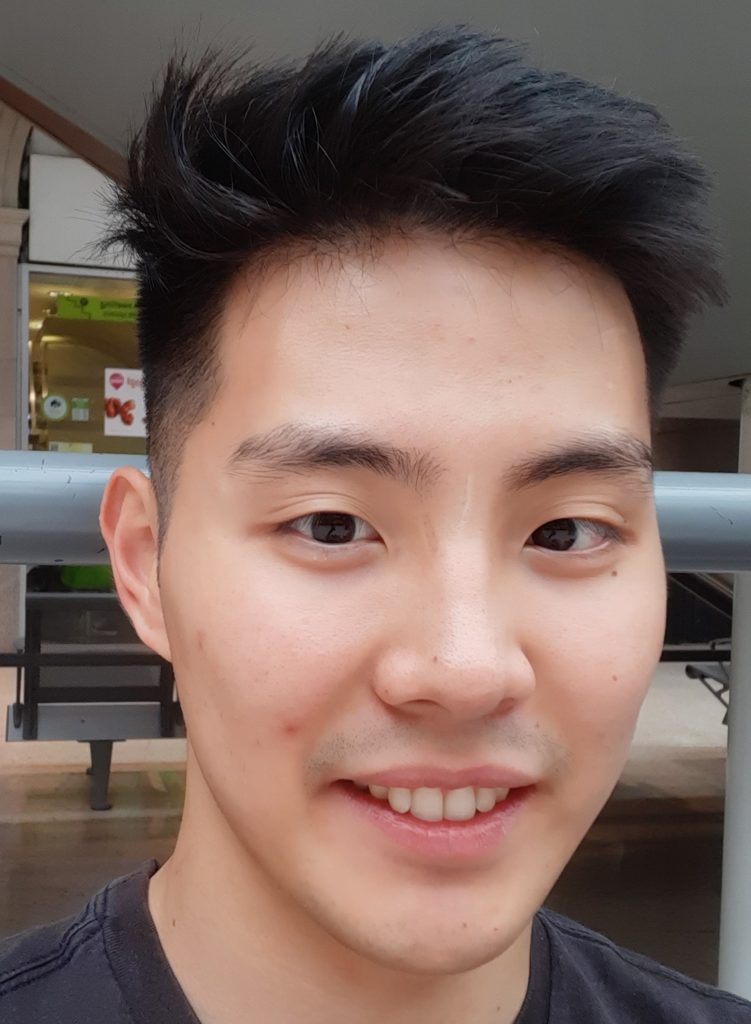On the 14th of September 2019, I had the incredible opportunity to attend the first ever Global Anaesthesia, Surgery and Obstetric Collaboration (GASOC) Global MedTech Conference in Leeds. It truly was a Global experience, with speakers around the world from Rwanda and California to the World Health Organisation (WHO) in Geneva! The various talks focussed on low cost surgical equipment and systems to tackle health inequalities in Lower-and middle-income countries (LMICs), with many opportunities to network and actually see the products of low-cost innovation.

The conference began in a dimly lit room, in a theatre that had an air of seriousness to the whole event. As people filled the seats and the conference began, it was quite the opposite, with a light-hearted and optimistic introduction and inaugural speech from the organising committee and the executive board member at Leeds City Council.
Professor David Jayne
We dived straight into talks, each more informative and eye-opening than the last. The first talk was given by Professor David Jayne, Clinical Director of the Leeds NIHR Medical Devices on Global Health Research in which he began by talking about LMIC specifications in North India and Sierra Leone. It was surprising to hear that in the whole of Sierra Leone, there was only one orthopaedic surgeon, which highlighted the huge inequalities in healthcare. With these inequalities, frugal innovation was the basis of the talk with suggestions of Ilizarov frames in orthopaedics, gasless laparoscopic surgery and low-cost simulators for skills training. With this in mind, Professor Jayne introduced some underlying principles: to seek opportunity in adversity, do more with less, think and act flexibly, include the margin (think about everyone, irrespective of their background) and to follow your heart (do what’s right) – a resounding yet humble message on the purposes of studying medicine and the appreciation of the work environment we have today.
Professor Jenny Dankelman
The next talk was given by Professor Jenny Dankelman of TU Delft Netherlands who previously gave a similar talk at a TEDx event. This first half of the talk served to accentuate the problem of dissemination of low-cost quality surgical equipment. Her talk was intriguing, giving examples of distribution systems of Amazon and Coca-Cola and how Global surgery needs to learn from their systems and infrastructure to provide worldwide access to surgical services. Professor Dankelman presented a vast amount of ideas, some that have been adopted and some speculative. Her main focus was to work with whatever and whomever could help: from biomedical engineers to students. Professor Dankelman worked with students to invent a device to dispose of sharps and other hospital waste safely, which is 50% of the cause of disease due to the reuse in rural areas.
Professor Gnanaraj Jesudian
The talk given by Professor Gnanaraj Jesudian was perhaps my favourite talk of the day. He provided us with many images of the frugal innovations followed by funny commentaries on how he came across inventing them which had now been established rural India. He stressed that low cost innovation is about targeting not just surgeries but also training, providing us with a picture of a pig being used for laparoscopic surgery and cystoscopy. He provided us further with weird and wonderful inventions such as using cell phone cameras for appendectomies, vacuum therapy unit for diabetic ulcers, and using mosquito nets for hernia repair. These innovations, he explained, were born from lack of resources coupled with desperation which has provided many patients with safe care thus far; I sat baffled at the sheer ingenuity and tenacity. He is currently working on devices and techniques such as the Gas Insufflation Less Laparoscopic surgeries and Laptop Cystoscope and he left the audience to wonder how much these devices may cost in urban areas.
Q&A
A lively question and answer session with the three speakers and the audience ensued, as questions about the ethics of low cost tech were asked, with some members stating that in certain cases, the bigger medical device companies simply ‘buy out’ cheaper technology that are ultimately never produced, creating a monopoly. Further on, important questions such as the justification of endeavouring to cut cost in return for malpractice was asked, which turned the Q&A into a light-hearted debate which concluded with the need for specific rural surgery research, advocates, further reviews and time.

Frugal Inventions
During lunch, I had the opportunity to see various posters and actual frugal inventions including the endoscope that can be printed by any 3D printers around the world to virtual reality simulations for medical school OSCE exams! After breaking for lunch, we had another series of talks from Adriana Velazquez from the WHO, providing answers to bioengineering availability, an innovation raised by Professor Dankelman, followed by talks that highlighted individual efforts in technological innovation, notably the EcoClave, a pressure cooker using wood that helps equipment sterile. There were also ambitious talks about setting up MEDx, (which is TEDx for medicine) which may allow access to a wider audience and improve awareness.
Hackathon
The highlight of the day was the Hackathon, a 15-minute session in groups coming up with an idea on how to reduce sepsis mortality. We started off with brainstorming ideas to realise the difficulty of the task as we submitted our idea in the last few seconds! We then had 90 seconds to present the idea to the panel to win a prize. We presented an idea of an app for tackling sepsis, dubbed STOPSIS, which would allow the user to quickly detect sepsis, provide management and alert other members in the vicinity. Unfortunately, we did not win but nonetheless insightful due to the number of ideas a group of people could come up with in a limited amount of time.
Conclusion of event
The event closed with networking and opportunities to meet very accomplished people. It was truly humbling experience as they discussed future projects: it was refreshing to learn that there were so many passionate people working together to help the less fortunate. I sincerely hope that the next conference is more successful and equally enriching.
~~~~~~~~~~~~~~~~~~~

Yangmyung Ma is a fourth year medical student at HYMS and is the current President of the HYMS MedTech Society. He has a keen interest in Plastic surgery and research. In his spare time, he enjoys playing music or sports.

